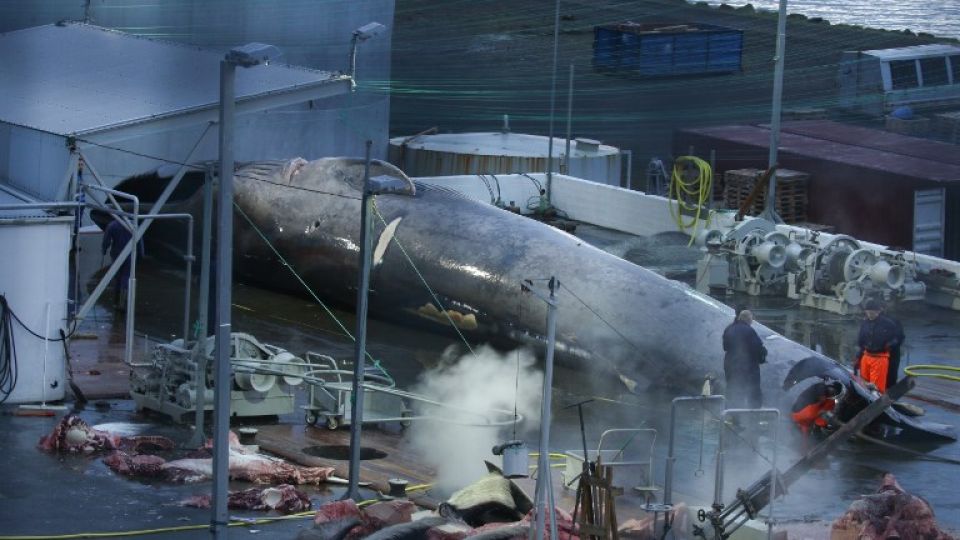December 21, 2018
With the aim of resuming commercial whale hunting, Japan is likely to withdraw from the International Whaling Commission, it was learned Thursday.
The government is planning the departure as there is no prospect of resumption as things stand now, due to the moratorium on commercial whaling adopted by the IWC. Japan has nevertheless observed the moratorium. It is expected its departure will be opposed globally, particularly among anti-whaling nations.
The IWC was set up for the purpose of the conservation and sustainable use of whales. Currently it has 89 member nations, including Japan. The majority of members are against whaling.
The IWC adopted the moratorium in 1982 to preserve whales and Japan suspended commercial whaling in 1988. Whale meat currently sold in Japan is obtained as a “by-product” of whaling research in the Antarctic Ocean and the Northwest Pacific, except for imports from Iceland and elsewhere.
Japan has tenaciously asserted at IWC meetings that commercial whaling will be resumed for certain species whose populations are found to have sufficiently recovered based on scientific data obtained through whaling research.
Yet whaling and anti-whaling countries have clashed over the matter. A situation described by a government source as “the IWC being unable to decide anything on resource management” has been continuing, even causing doubt over the IWC’s significance as an international organization.
At an IWC general meeting held in September in Brazil, Japan proposed commercial whaling be partially resumed. Anti-whaling countries were strongly against the proposal, stating that a partial lifting of the moratorium is absolutely unacceptable. As a result of bitter debate, the proposal was voted down. Japan’s proposal was backed by 27 nations and opposed by 41, while two abstained.
In response to being voted down, the government delegation expressed the possibility that Japan could withdraw from the IWC, saying, “If the IWC does not permit any form of commercial whaling and there is no potential for two different stances or ideas to coexist, Japan cannot help but assess all possible options.”
If Japan notifies the United States — which is entrusted with managing the IWC’s withdrawal and joining process — by the end of this year of its wish to withdraw, Japan would pull out on June 30 next year.
It is very unusual for Japan to withdraw from an international organization. There are also cautious views of withdrawal within the government. Taking those matters into consideration, the government is making final adjustments for the process and timing of leaving.
Currently, four countries — Iceland, Norway, Canada and Indonesia — conduct commercial whaling of 13 species covered by the IWC moratorium, including blue whales.


